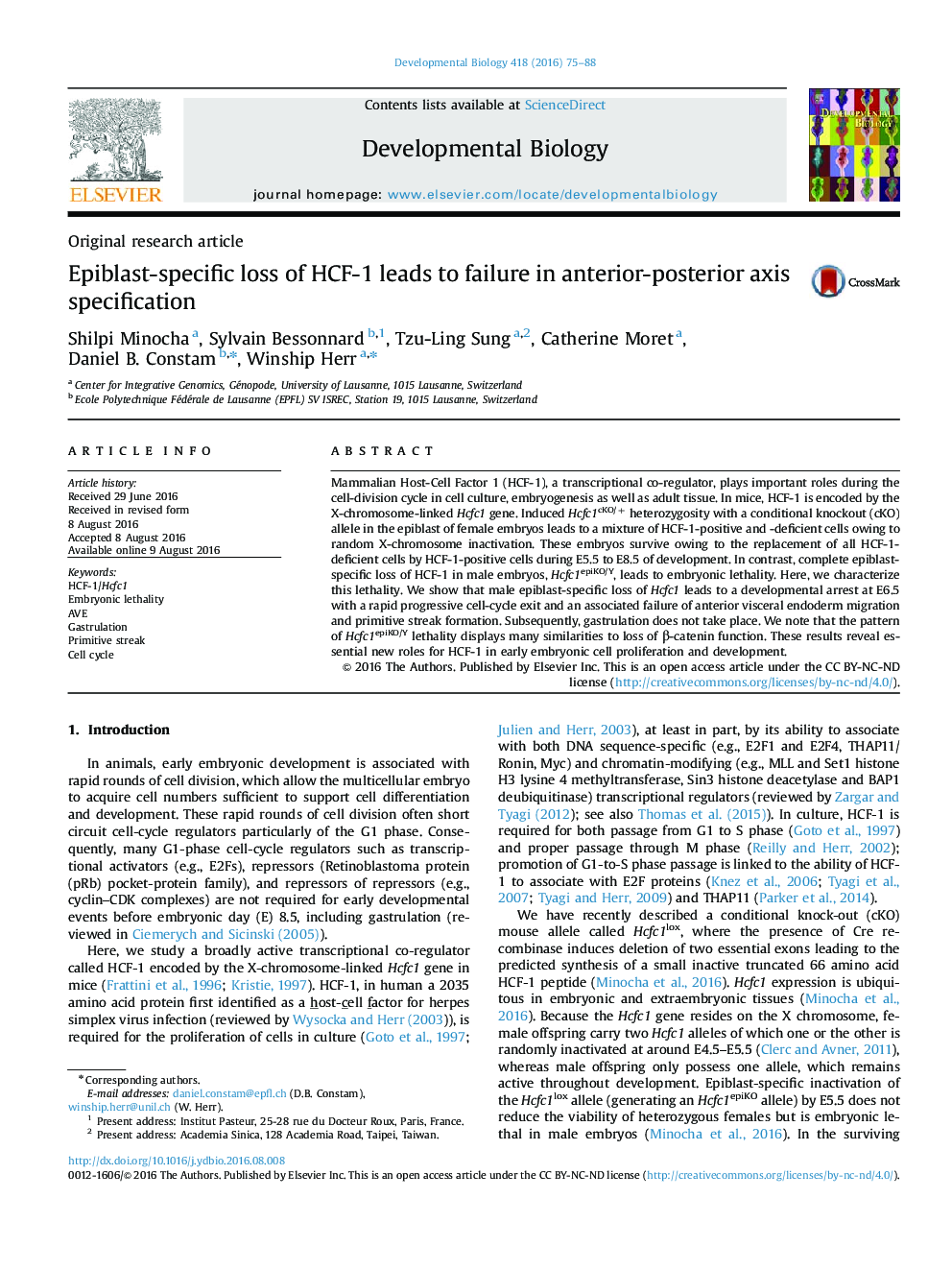| Article ID | Journal | Published Year | Pages | File Type |
|---|---|---|---|---|
| 5531998 | Developmental Biology | 2016 | 14 Pages |
â¢Epiblast-specific HCF-1 depletion leads to developmental arrest by E6.5.â¢HCF-1-deficient cells rapidly exit the cell cycle.â¢Epiblast-specific HCF-1 depletion impairs A-P axis specification and gastrulation.â¢Loss of HCF-1 affects β-catenin activation.â¢Loss of HCF-1 in the epiblast phenocopies embryonic loss of β-catenin.
Mammalian Host-Cell Factor 1 (HCF-1), a transcriptional co-regulator, plays important roles during the cell-division cycle in cell culture, embryogenesis as well as adult tissue. In mice, HCF-1 is encoded by the X-chromosome-linked Hcfc1 gene. Induced Hcfc1cKO/+ heterozygosity with a conditional knockout (cKO) allele in the epiblast of female embryos leads to a mixture of HCF-1-positive and -deficient cells owing to random X-chromosome inactivation. These embryos survive owing to the replacement of all HCF-1-deficient cells by HCF-1-positive cells during E5.5 to E8.5 of development. In contrast, complete epiblast-specific loss of HCF-1 in male embryos, Hcfc1epiKO/Y, leads to embryonic lethality. Here, we characterize this lethality. We show that male epiblast-specific loss of Hcfc1 leads to a developmental arrest at E6.5 with a rapid progressive cell-cycle exit and an associated failure of anterior visceral endoderm migration and primitive streak formation. Subsequently, gastrulation does not take place. We note that the pattern of Hcfc1epiKO/Y lethality displays many similarities to loss of β-catenin function. These results reveal essential new roles for HCF-1 in early embryonic cell proliferation and development.
